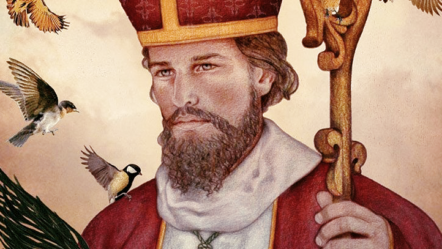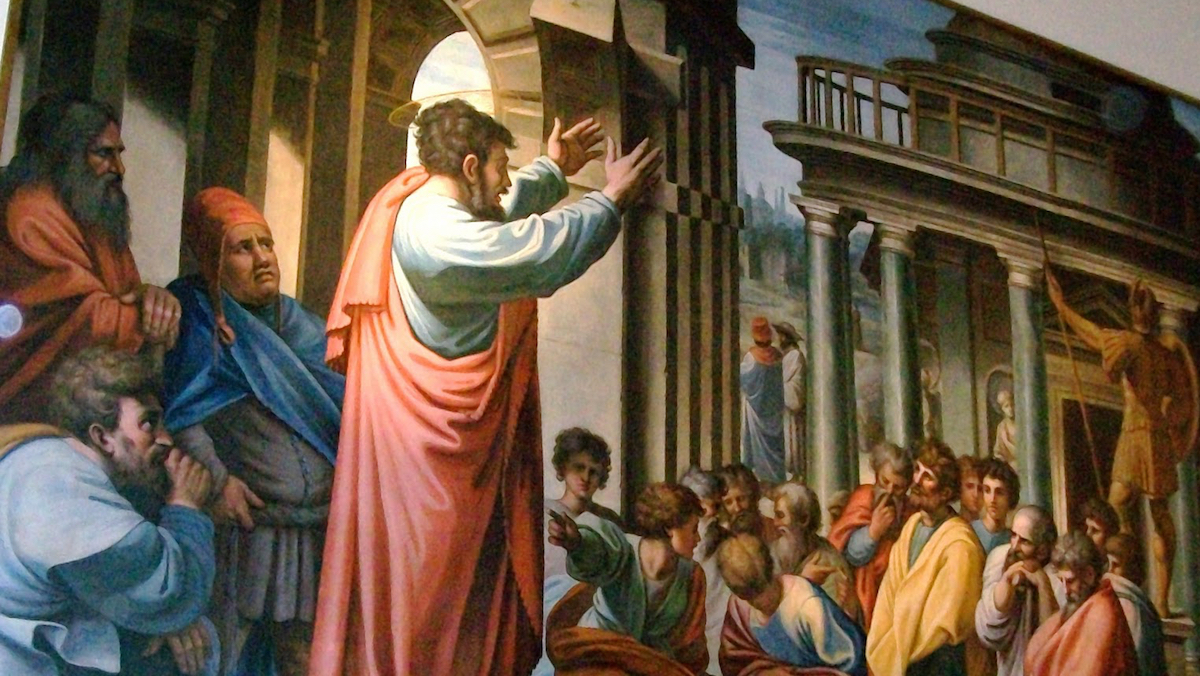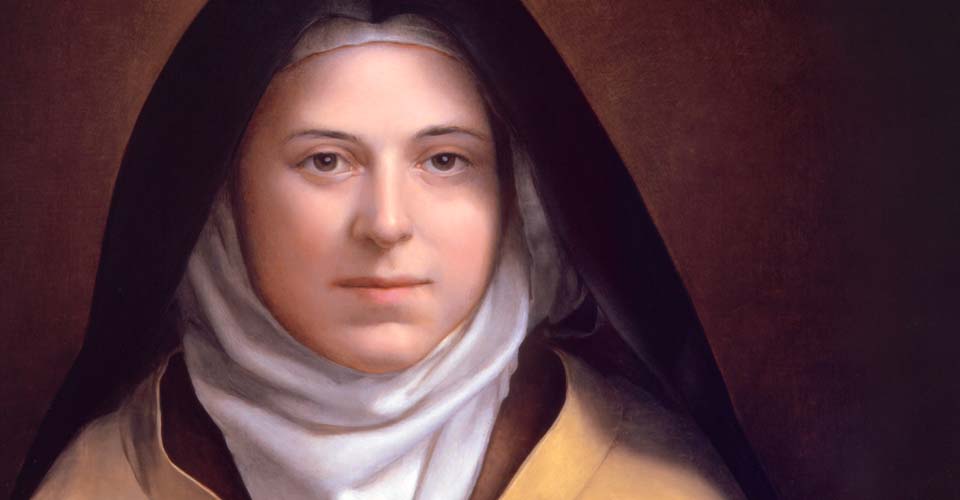On February 14th, it seemed the entire world celebrated Valentine’s Day. With the internet bombarded with commercials advertising St Valentines, there were all sorts of loving expressions put on display to celebrate— love.
We all agree that we need love. In fact, we were created to love and be loved in return. The love we crave is translated into that constant deep sigh within our hearts. We do everything so as to be loved and appreciated. Theologically this cannot not be the case. The Triune God, the Father, Son and Holy Spirit, is a dynamic of eternal love. In his Summa Theologica, First Part in question 37 entitled The Name of the Holy Ghost – Love, St Thomas Aquinas has this to say in his reply to objection 3:
The Holy Ghost is said to be the bond of the Father and Son, inasmuch as He is Love; because, since the Father loves Himself and the Son with one Love, and conversely, there is expressed in the Holy Ghost, as Love, the relation of the Father to the Son, and conversely, as that of the lover to the beloved. But from the fact that the Father and the Son mutually love one another, it necessarily follows that this mutual Love, the Holy Ghost, proceeds from both. As regards origin, therefore, the Holy Ghost is not the medium, but the third person in the Trinity; whereas as regards the aforesaid relation He is the bond between the two persons, as proceeding from both.
From this deep reflection I can humbly gather the fact that love is personal because it comes from the Third Person of the Holy Trinity, the Holy Spirit. Love is sharing because it is mutually shared between the Father and the Son. Most of all, love is eternal because this Trinity of Persons, in other words Three Persons One God, is eternal, meaning of course that it has no beginning and no end.
This love is to be found in you and me, particularly with our baptism. As the Catechism of the Catholic Church rightly tells us in number 257 about the Holy Trinity: ‘O blessed light, O Trinity and first Unity!’ [LH, Hymn for Evening Prayer.] God is eternal blessedness, undying life, unfading light. God is love: Father, Son and Holy Spirit. God freely wills to communicate the glory of his blessed life. Such is the ‘plan of his loving kindness’, conceived by the Father before the foundation of the world, in his beloved Son: ‘He destined us in love to be his sons’ and ‘to be conformed to the image of his Son’, through ‘the spirit of sonship’. [Eph 1:4-5, 9; Rom 8:15, 29.] This plan is a ‘grace (which) was given to us in Christ Jesus before the ages began’, stemming immediately from Trinitarian love.[2 Tim 1:9-10.] It unfolds in the work of creation, the whole history of salvation after the fall, and the missions of the Son and the Spirit, which are continued in the mission of the Church. [Cf. AG 2-9.].
If, on St Valentines, we celebrate this Trinitarian love which if found in us how much happier and full of hope we shall be! Sometimes we tend to forget that we are human simply because we were created by God who, at the fullness of time (Eph 1:10), became one of us in Jesus Christ. Now, if in Christ we learn what true love is, why can’t we try to let that love fashions us in itself?
The outstanding educator of what true love is, is certainly Jesus Christ. I am really captivated by what Pope Benedict XVI wrote concerning love in his first encyclical on Christian love, Deus Caritas Est, issued on Christmas of 2005. This publication had the explicit purpose of portraying that love becomes personal because it necessarily stems from the birth of Jesus, the visible expression of God’s eternal love for us, his children. In paragraph 6 Pope Benedict XVI portrays true love as self-giving as Jesus taught us by his life and words.
It is part of love’s growth towards higher levels and inward purification that it now seeks to become definitive, and it does so in a twofold sense: both in the sense of exclusivity (this particular person alone) and in the sense of being “for ever”. Love embraces the whole of existence in each of its dimensions, including the dimension of time. It could hardly be otherwise, since its promise looks towards its definitive goal: love looks to the eternal. Love is indeed “ecstasy”, not in the sense of a moment of intoxication, but rather as a journey, an ongoing exodus out of the closed inward-looking self towards its liberation through self-giving, and thus towards authentic self-discovery and indeed the discovery of God: “Whoever seeks to gain his life will lose it, but whoever loses his life will preserve it” (Lk 17:33), as Jesus says throughout the Gospels (cf. Mt 10:39; 16:25; Mk 8:35; Lk 9:24; Jn 12:25). In these words, Jesus portrays his own path, which leads through the Cross to the Resurrection: the path of the grain of wheat that falls to the ground and dies, and in this way bears much fruit. Starting from the depths of his own sacrifice and of the love that reaches fulfilment therein, he also portrays in these words the essence of love and indeed of human life itself.
In his own way, St Paul offers us marvellous commentary about the love Jesus brought us. In his First Letter to the Corinthians he shares with us the inherent character of this love when he writes: Love is patient and kind; love is not jealous or boastful; it is not arrogant or rude. Love does not insist on its own way; it is not irritable or resentful; it does not rejoice at wrong, but rejoices in the right. Love bears all things, believes all things, hopes all things, endures all things. Love never ends (1 Cor 13:4-8).
The last sentence is truly powerful. The original Greek is ἀγάπη οὐδέποτε πίπτει, that is agape oudepote piptei. An exhaustive and inclusive translation of this phrase would be something like: love, that is affection, benevolence, good will and esteem never at all falls or falls under condemnation or falls prostrate. This kind of love reigns supreme. Even if it is persecuted agape strengthens the heart at the heavy price of the most scars. However these scars are the sign of the supremacy of agape since they are approved by God. In his First Letter St Peter tells us: But if when you do right and suffer for it you take it patiently, you have God’s approval (1 Pet 2:20).
This very fact shows that God, who is the eternal agape, is still in control. Since He is agape Himself, God is the Blessed Controller. Sovereignty, which is His eternal agape, makes God boss, not us. It means we don’t have to worry about things out of our control because those same things are under his control. We can rest, even when we don’t understand what or why certain things are happening to us or around us. God’s sovereignty and wisdom is unexplainable, because His ways are truly not our ways. Knowing that makes trusting Him imperative. From this we can simply deduce that only in him are found unconditional love, unchangeable character, unlimited power, unsearchable forgiveness, unending promises, and unexplained sovereignty. God is our Lord and Might in power. He is our perfect love. Amen.
Therefore, since God is love, our life is a gift of love from Him. Let us not forget to thank Him every day, every morning, for this love. And let us keep remember that the more we forgive the more we grow in his love that never ends. As Saint Faustina tells us in her Diary: He who knows how to forgive prepares for himself many graces from God. Forgiveness is the perfect show of love which never falls but prevails in every situation, difficult as it might be.
Lord, help us to never wait for a perfect moment to love but just help us take a moment and make it perfect by loving others with your love as you have always loved us. Amen.
Can this be that famous love of St Valentine?








